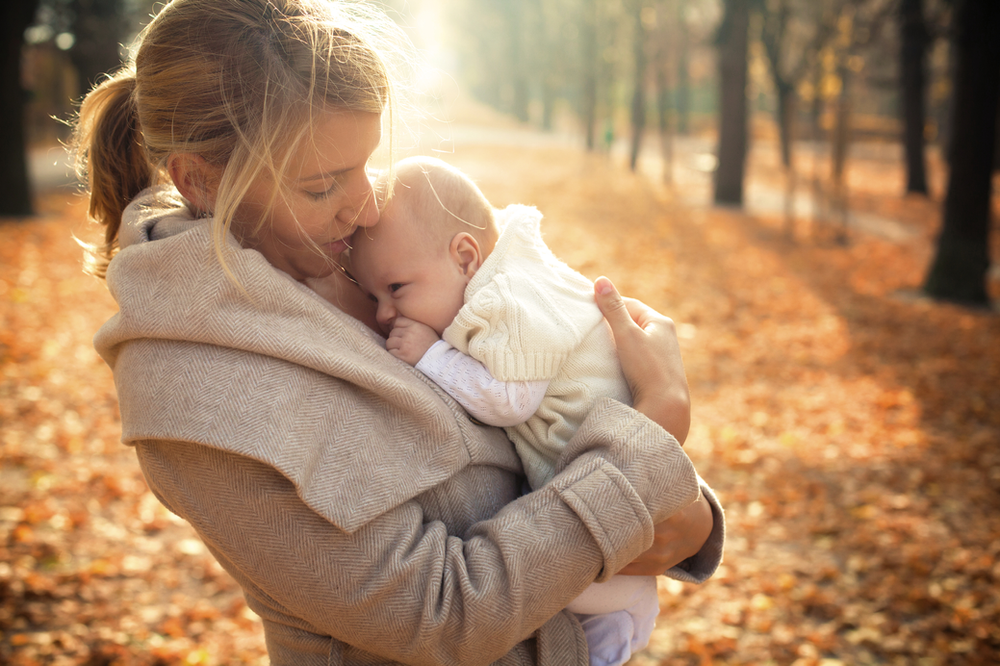
No one wants to see their child sad, especially not at those transition moments when you’re leaving for work or saying goodbye at the classroom door. And even when you trust your child’s classroom and know that your little one will be cared for and nurtured in your absence, it’s heart-wrenching to hear that cry and know it’s because you’re leaving.
Separation stress usually appears for infants at about eight months or so, when their cognitive development has developed to understand that their parents are separate from them and can leave. Earlier, your infant has little awareness that you are a different person, so the idea that you might not be available to them is a never-thought-thought. You might notice a sudden awareness, seemingly overnight, when your infant is able to move among adults with ease to their tearfulness and stress at leaving your arms. Many infants experience this for a few weeks or months, as they learn that, while you can leave, you can also come back. Until then, if your child behaves as though they’re afraid you’re leaving forever, that’s because they may believe you are.
In this window, you can support your child by offering nurturing opportunities for them to be held and cared for by other loving adults, to practice being with other people and to experience you coming and going. At school transitions, offer a quick and predictable “goodbye,” and be certain to go when you say you’re going to go. If you have things to communicate with the teachers, do so before you say goodbye to your child, so you’re not turning back to the room to ask for “just one more thing,” once you’ve made the transition. Make sure you present a confident demeanor to your child, too. A warm smile, a loving wave, and a cheerful exit convey your confidence and help your child to know that you feel fine with who you’re leaving them with. Avoid, though, sneaking out of the classroom when your chid isn’t looking. Your child needs to know that goodbye-for-now is not the same as goodbye-for-good. As they develop that confidence, they need to trust that you are where they think you are.
Growing toddlers often demonstrate a different kind of separation stress, when their development now includes a strong attachment to particular people. While younger infants can be anxious by the idea of a separate person leaving, older infants and young toddlers may demonstrate stress at the absence of a particular person. These are often more intense than you may have seen earlier, a change that reflects your child’s growing understanding that their behavior can influence their environment. (Like other cognitive developments, your child’s developing mind is a good thing, even when that growth may present itself in ways that make your wobbly.)
You can use this new phase of development to help ease the transition. Because children are now capable of more complicated memories, consider specific routines for saying goodbye, creating some order and predictability and a sense of control for your child. You might practice a two-kisses-and-a-nose-wiggle to say goodbye, or ask your child to be in charge of some part of the goodbye, like handing you your keys. While your child will not understand the passage of time, they will understand cues to indicate when you’re returning. “I will be back after lunchtime,” or “I’ll be back after your second time outside,” can help to give your child some security about your return. If your child is more verbal, you can ask them, “When will I be back,” to let them articulate your return.
Throughout these transitions, your child’s teacher is likely to keep you abreast of how long the stress lasts after you leave and whether it’s within the norms that we often see for children at this point of development. Remember: your child does not have the expansive vocabulary for articulating complicated emotions just yet. They’re not going to be able to say, “Mommy, I like school very much and I enjoy the company of my peers, but I prefer being with you and I’d like to discuss ways in which we can make that happen more often.” They’re going to cry, or wince, or reach for you. Offer them language. Offer them comfort and routine. Offer them your confidence, and stay in touch with their teachers. You’re teaching your child that you will return, that you’re reliable and that their relationship with you is secure. The more predictable and confident you can be in that process, the more quickly your child will feel safe in it, to.
#Separation #Transitions #FirstPlane #Infants #Toddlers #ForParents
